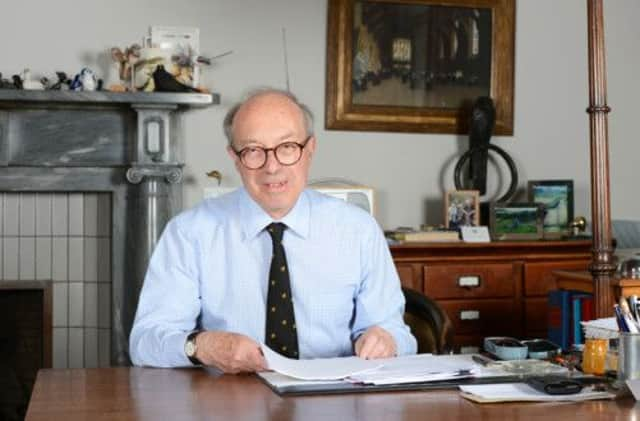Lord Hope warns on dangerous corroboration change


Justice Secretary Kenny MacAskill intends to end the age-old pillar of Scots law that a solitary piece of evidence is not enough to bring a case to court.
But Lord Hope, who until recently was deputy president of the Supreme Court, fears convictions based on confessions alone could be “dangerous”.
Advertisement
Hide AdAdvertisement
Hide Ad“I just express concern that the proposal seems very far-reaching and, potentially, quite dangerous if you have a situation where somebody is at risk of being convicted on his own confession, which I would have thought was absolutely fundamentally wrong in Scots law,” he told Holyrood magazine.
“It may be that the number of cases that go to trial now on confessions are comparatively few, but we developed our law of corroboration initially as a barrier against people being taken to court on a confession which had been extracted by torture.
“This was in the early 18th century when things were very, very different, and people reacted against this, and I’d be very sad to see that kind of protection go.”
He acknowledged many people campaigning for change hope it will lead to criminal cases, particularly rape and domestic abuse, reaching court that currently do not.
“I know there is a real problem about cases that take place in situations where there is no other witness, apart from the victim and the accused, and that requires very careful thought,” Lord Hope said. “But I would have thought a more selective way of dealing with the problem would be wiser.”
Lord Hope – who was Lord Justice General, Scotland’s most senior judge, between 1989 and 1996 – joins the majority of Scottish lawyers and judges in opposing the change, which was recommended by Lord Carloway.
Lord Carloway, the Lord Justice Clerk, was asked to review aspects of Scots law following a Supreme Court decision, delivered by Lord Hope in 2010, which said all suspects should be given access to legal advice before being interviewed by police.
This led to a fall in admissions during interview, which had been a valuable source of corroboration, and a belief that the scales of justice had been tilted in favour of the accused.
Advertisement
Hide AdAdvertisement
Hide AdThe Crown Office and Procurator Fiscal Service (COPFS) denied removing the requirement would risk creating miscarriages of justice.
A spokesman said: “COPFS would look for supporting evidence in all cases and that would include cases which involved confession evidence.
“Currently a person cannot be convicted on the basis of their own confession, unless they reveal only something the perpetrator of the offence would have known and the evidence bears that out. The police and the Crown would always look for additional evidence even where there is no requirement for corroboration.”
Rape Crisis Scotland is also keen to see the law changed.
The charity’s information and resource worker Eileen Maitland said: “Rather than preventing miscarriages of justice, Scotland’s requirement for corroboration hinders justice by stopping credible and reliable cases from being prosecuted. Scotland is one of the few countries that currently requires corroboration.
“It means there is a real chance men who have committed rape are walking free.”
The Scottish Conservatives said opposition is growing.
Justice spokeswoman Margaret Mitchell said: “This is yet another member of the judiciary pointing out that it is quite wrong to abolish corroboration.
“This, coupled with the views of all the other influential experts and organisations, should make the Scottish Government think again.”